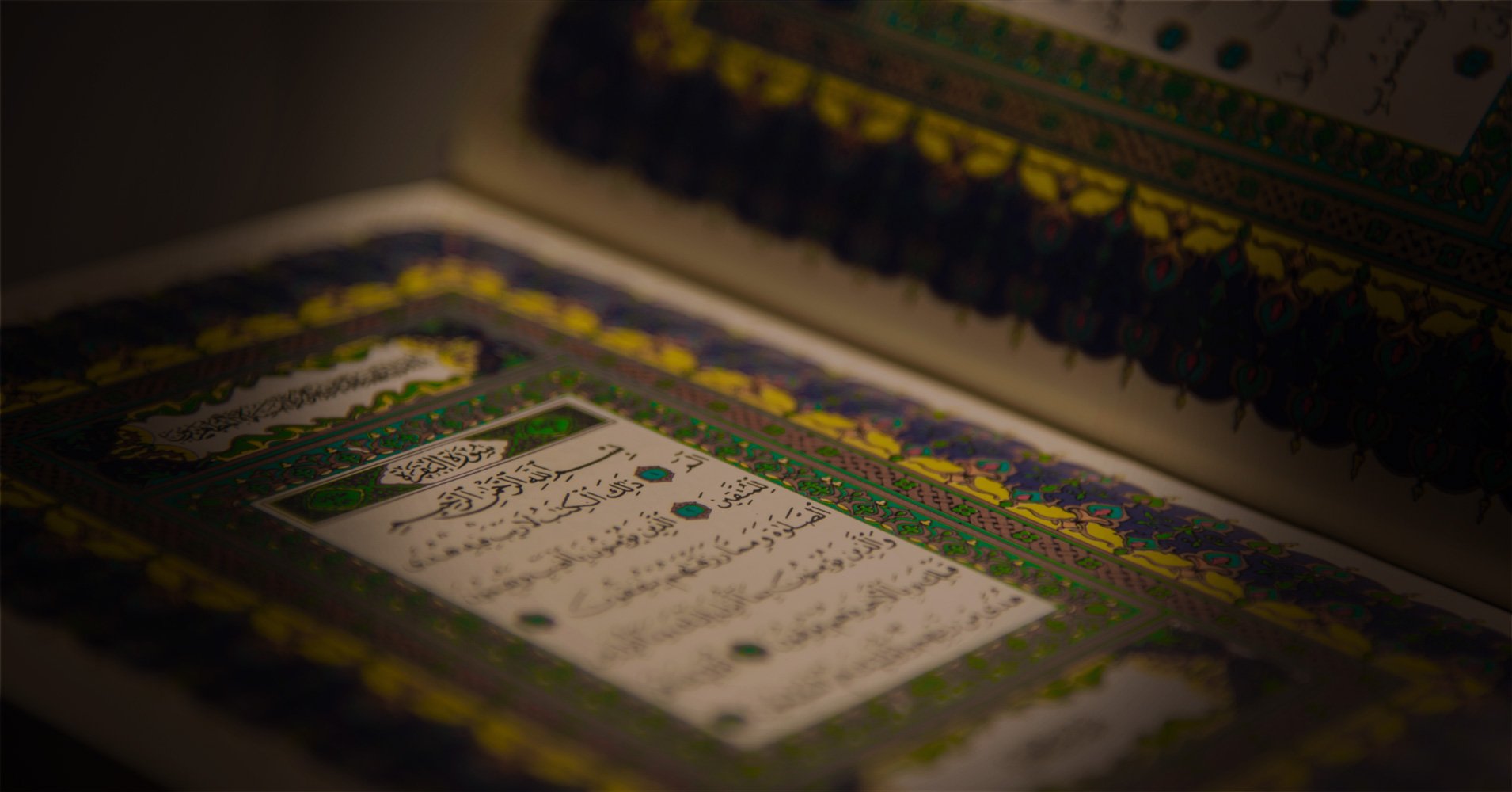The Quran does not appeal to blind belief, but to evidence ('clear signs'). It in fact denigrates those who would not use reason:
Indeed, the worst of living creatures in the sight of Allah are the deaf and dumb who do not use reason. (8:22)
The Quran's unceasing appeal to reason:
Among His Signs in this, that He created you from dust; and then,- behold, ye are men scattered (far and wide)! (30:20)
And among His Signs is the creation of the heavens and the earth, and the variations in your languages and your colours: verily in that are Signs for those who know. (30:22)
[It is He] who has made for you the earth as a bed [spread out] and inserted therein for you roadways and sent down from the sky, rain and produced thereby categories of various plants. Eat [therefrom] and pasture your livestock. Indeed, in that are signs for those of intelligence. (20:53-54)
When Jesus came with clear signs he said, ‘I have brought you wisdom; I have come to clear up some of your differences for you. Be mindful of God and obey me: God is my Lord and your Lord. Serve Him: this is the straight path.’ (43:63-64)
Indeed, in the creation of the heavens and the earth and the alternation of the day and night there are signs for people of reason. (3:190)
'Blind submission to authority' would suggest a poor, gullible fool (the Muslim), who does not deign to question his tyrannic, monolithic dictator (Islam). Yet Muslims are exhorted to seek knowledge, and to dedicate themselves to the study of their religion. The first word revealed by God to Muhammad was in fact, 'Read!'* -- what is that but a call to action, an urgent command, an appeal to reason? A religion that had something to hide would not encourage such persistent investigation, for fear that it would collapse under the weight of its own deception, let alone exhort its believers to the faithful pursuit of all knowledge concerning it. Islam does not only invite its own followers to investigate it, but invites all people to do so: the Quran is addressed to mankind as a whole, not merely to believers. You say that Muslims bear no tradition of 'independent thought and intellectual integrity', but that could not be further from the truth: the Islamic world flourished in a golden age at the time of Europe's dark age. It was this Islamic golden age that later contributed to a resurgence and renewal of European thought during the Renaissance, in mathematics, chemistry, physics, medicine, astronomy, philosophy, etc. This occurred not
in spite of Islam and the Quran, but
because of it.

en.wikipedia.org

en.wikipedia.org
* (96:1-5)
1. Read! In the Name of your Lord, Who has created (all that exists),
2. Has created man from a clot (a piece of thick coagulated blood).
3. Read! And your Lord is the Most Generous,
4. Who has taught (the writing) by the pen [the first person to write was Prophet Idrees (Enoch)],
5. Has taught man that which he knew not.




